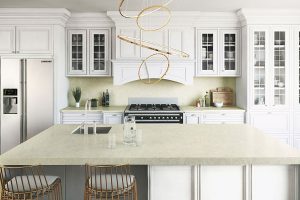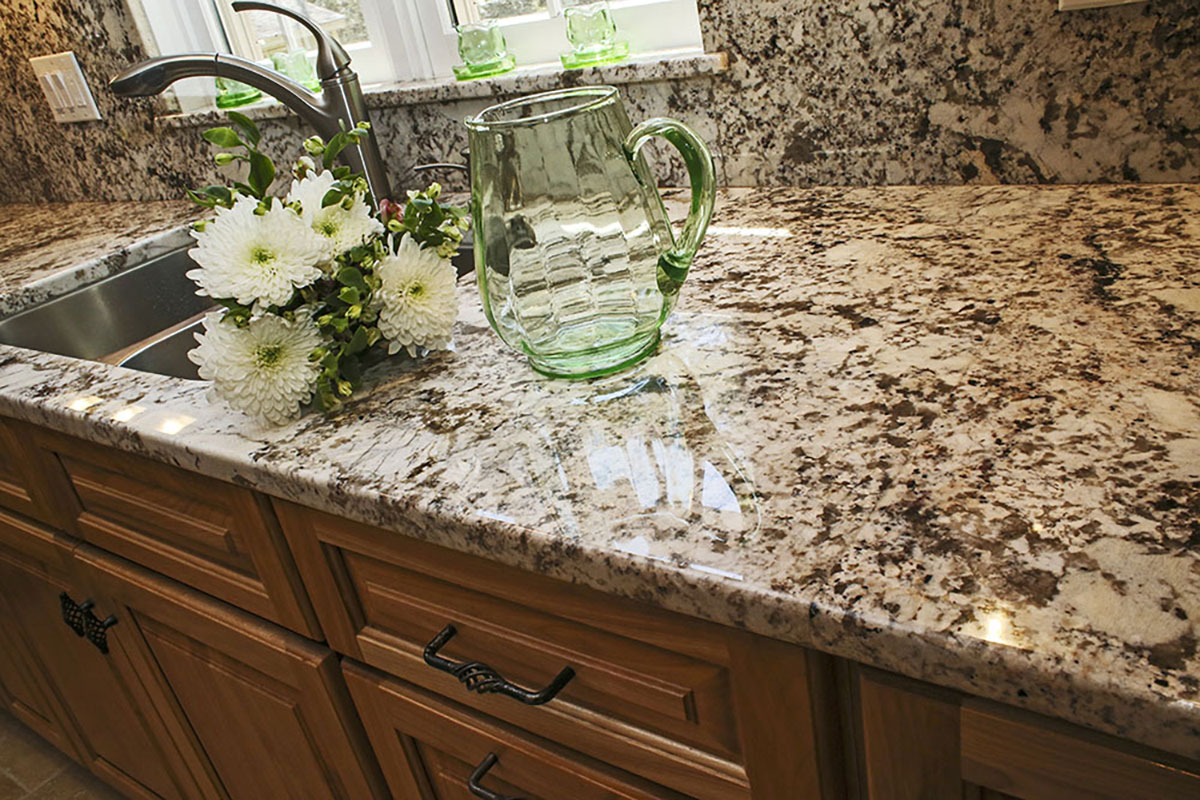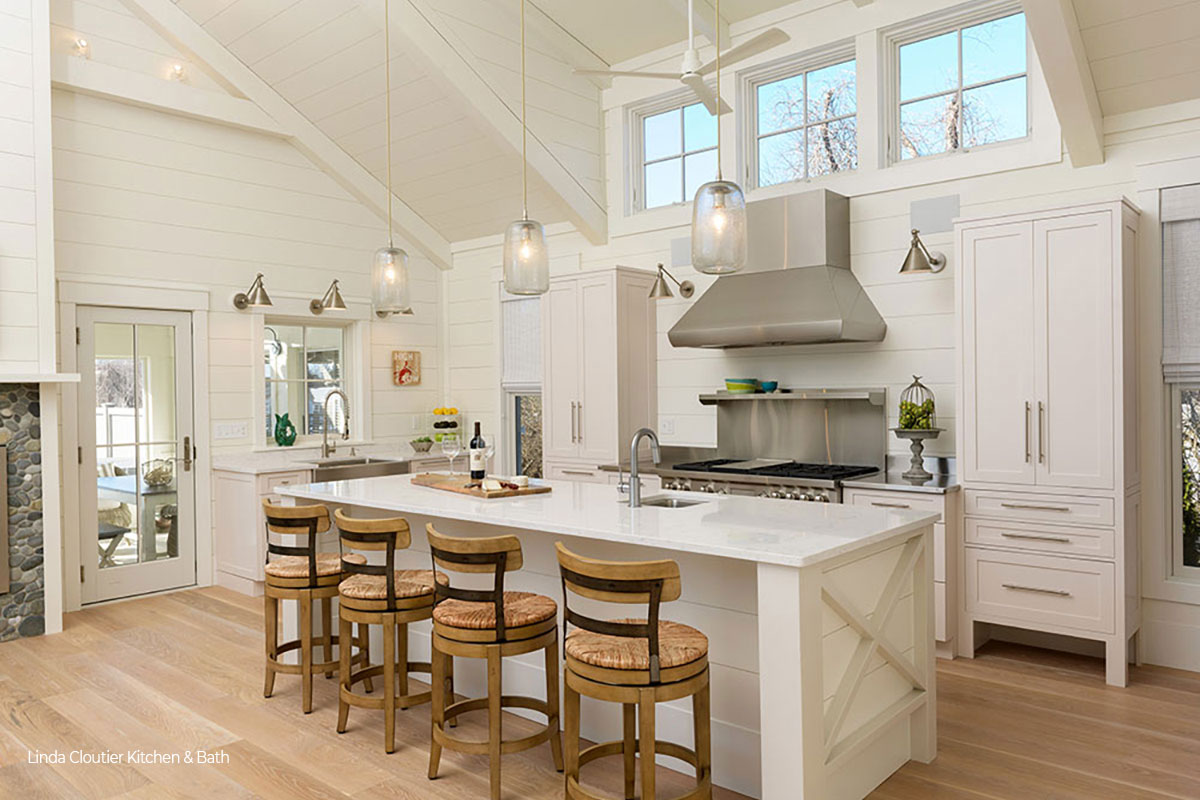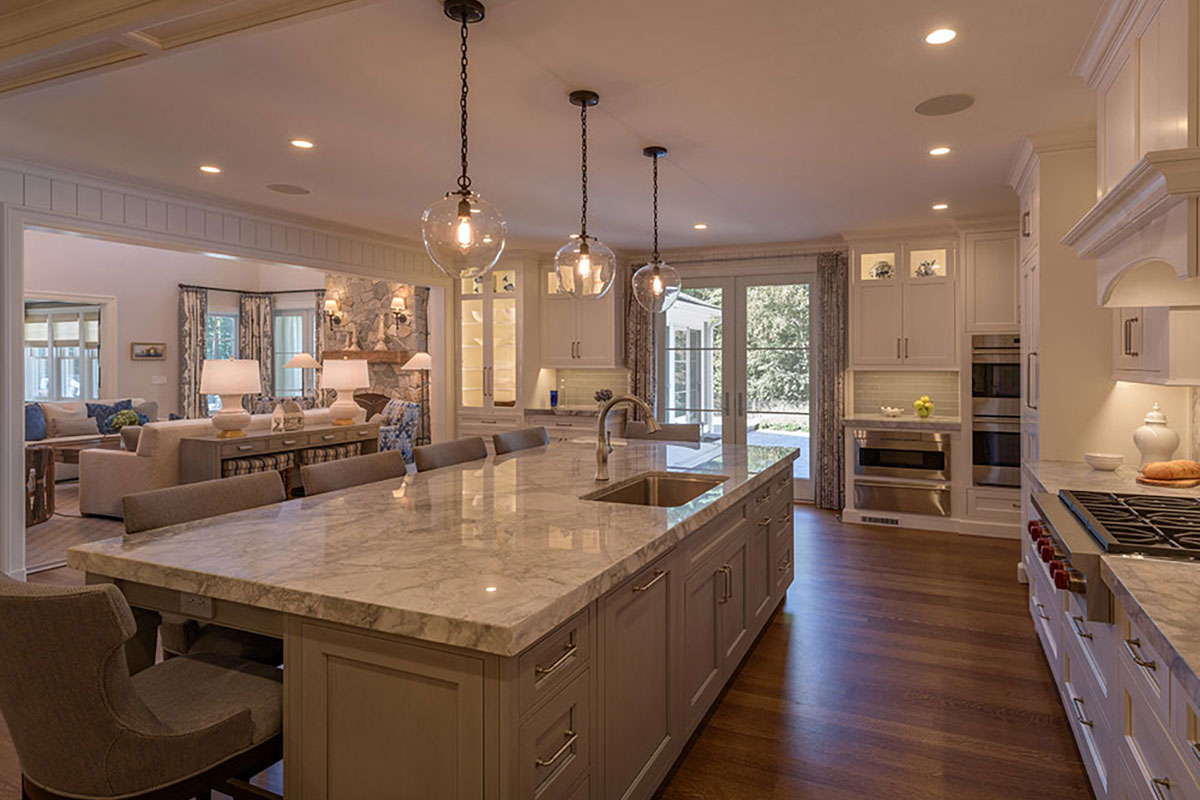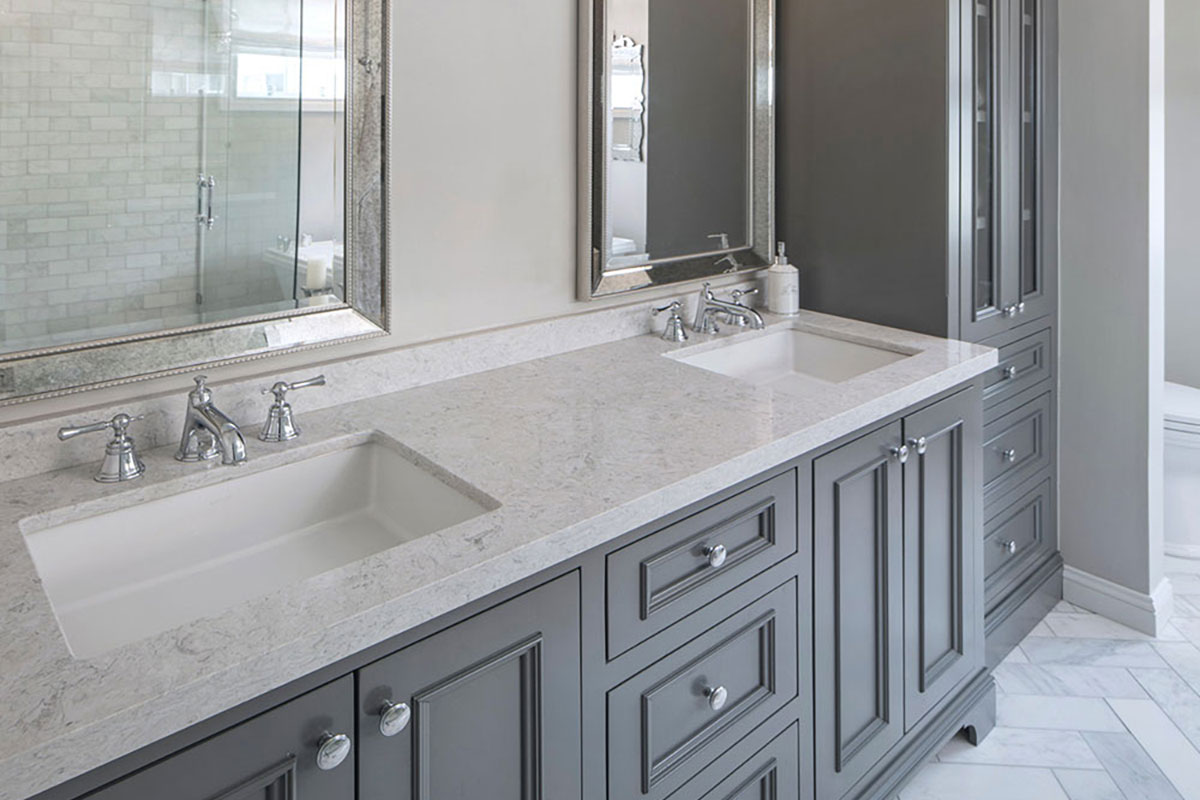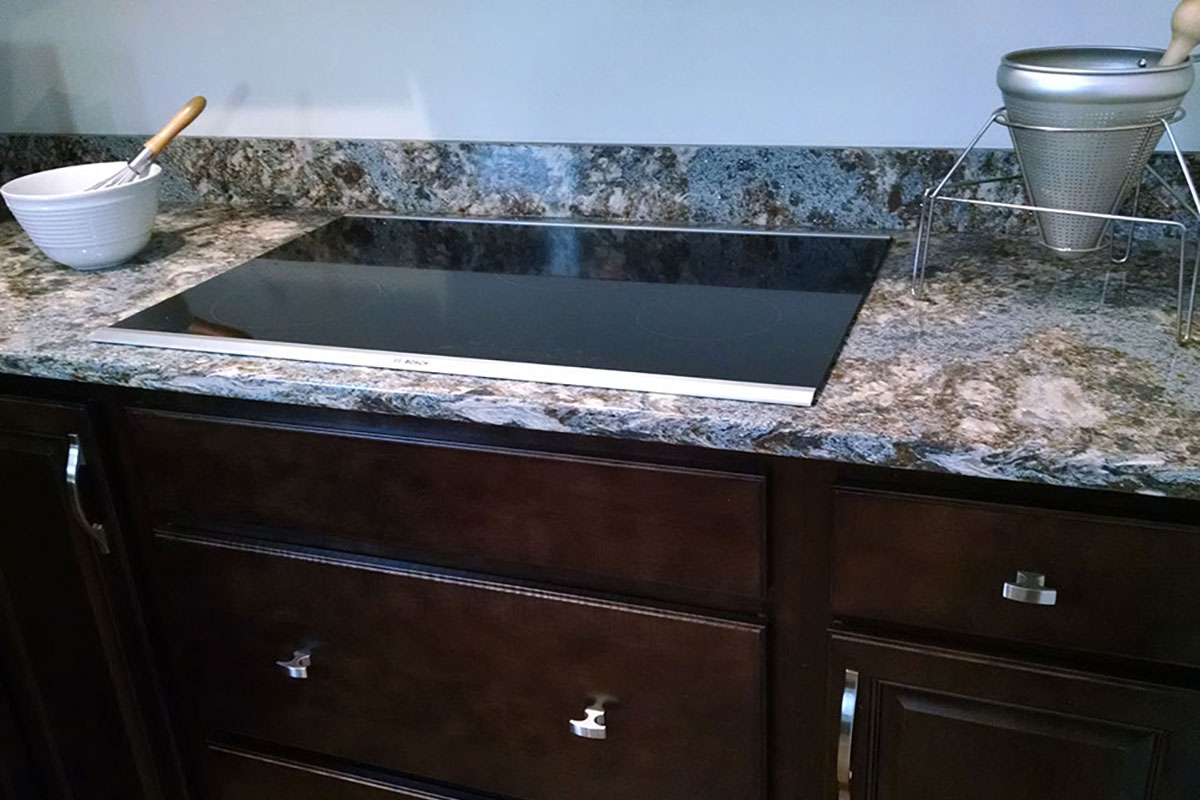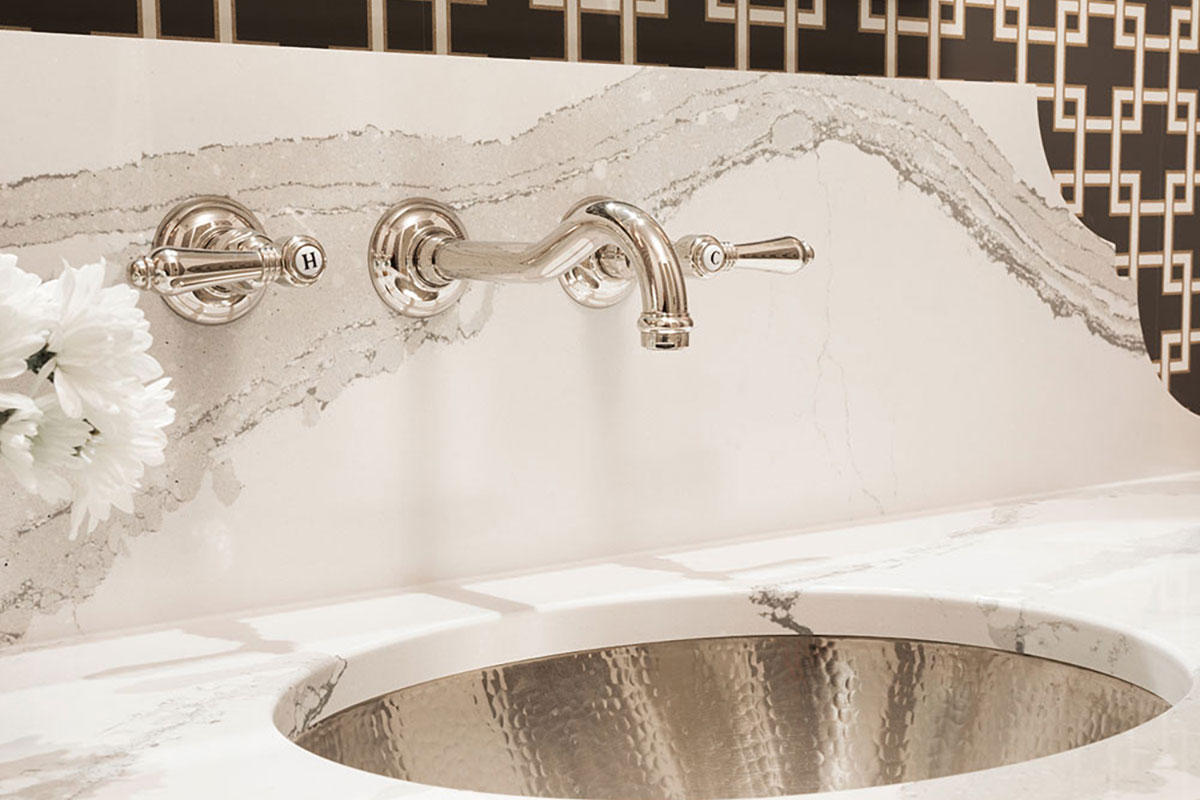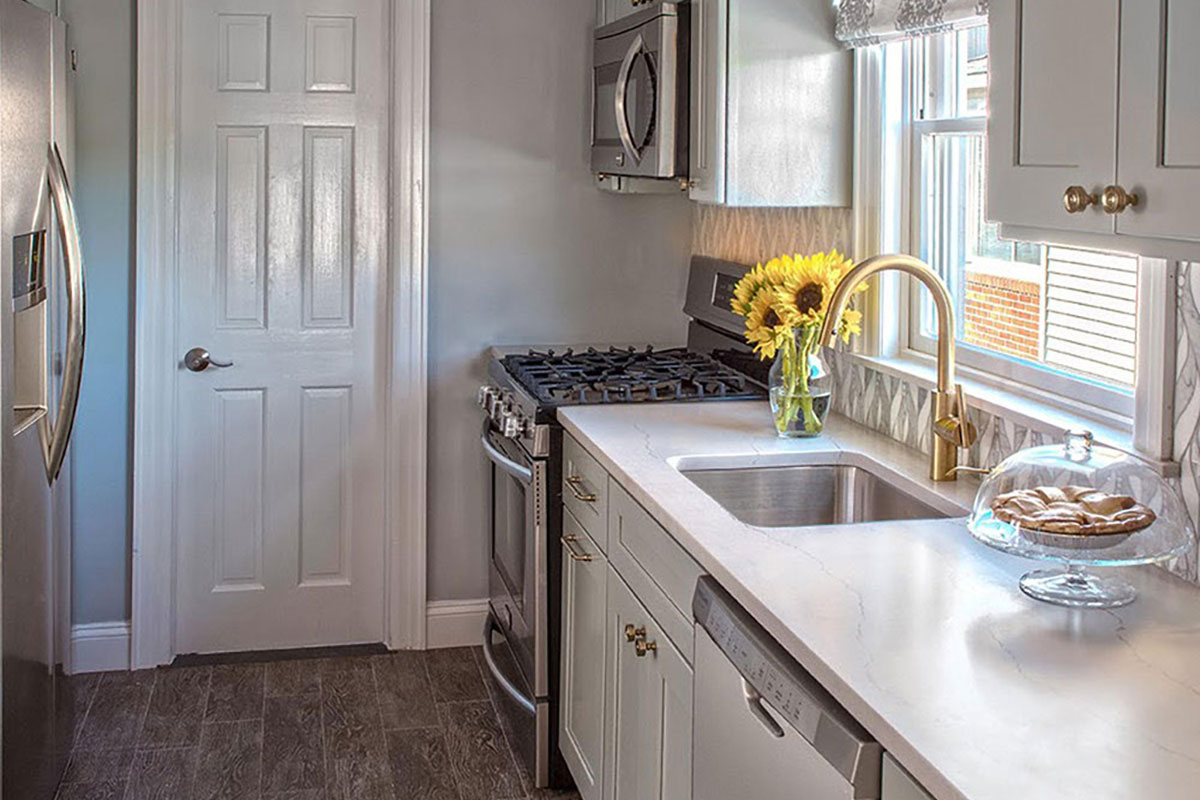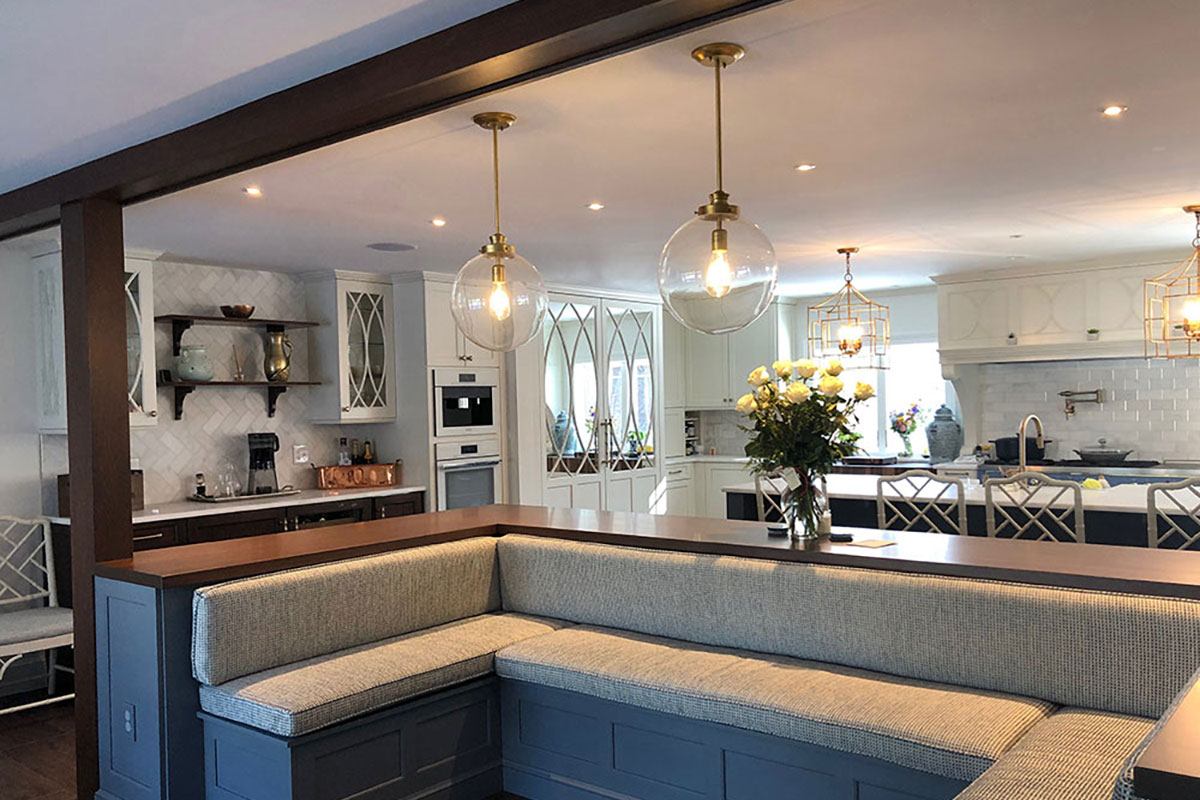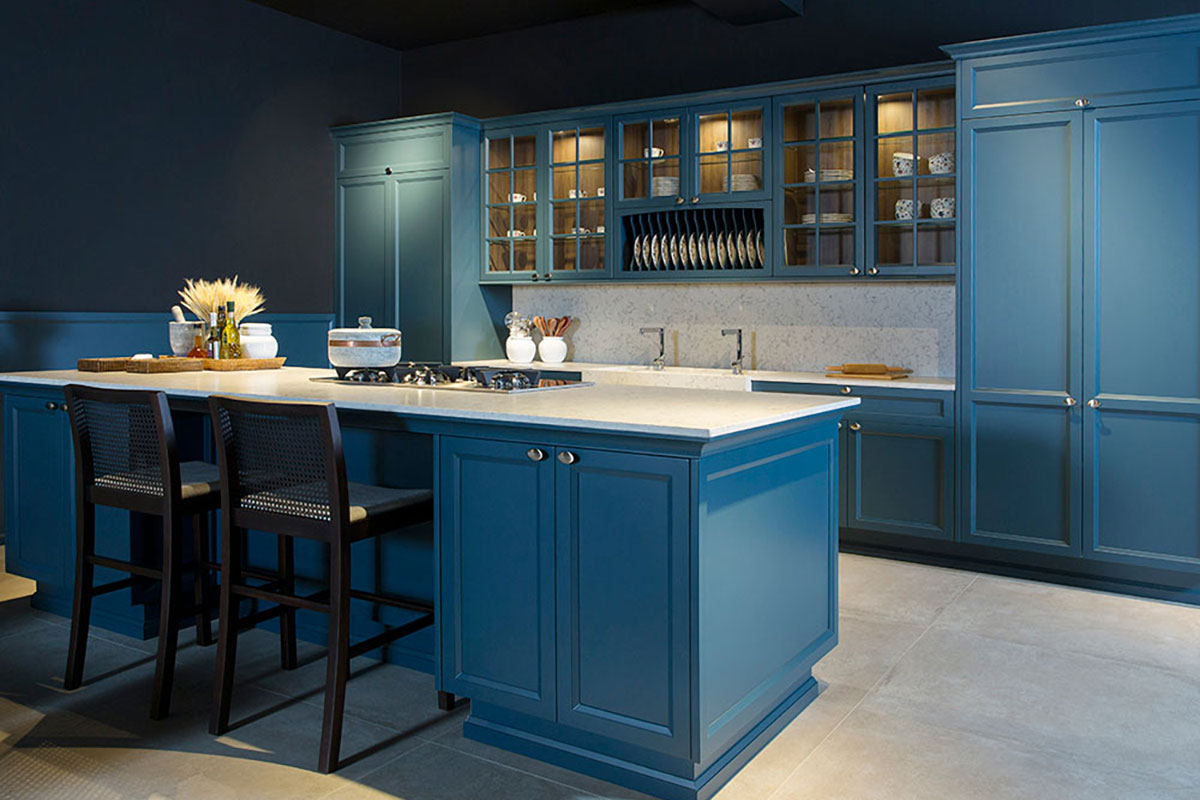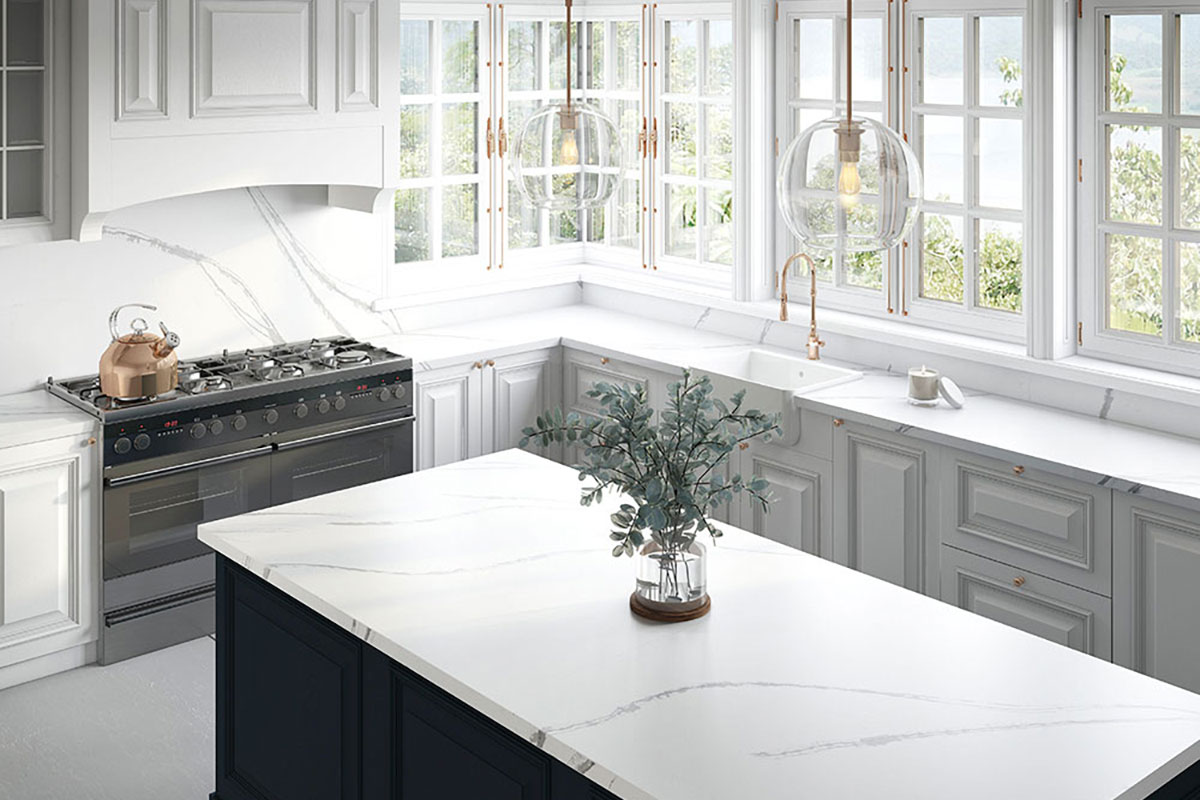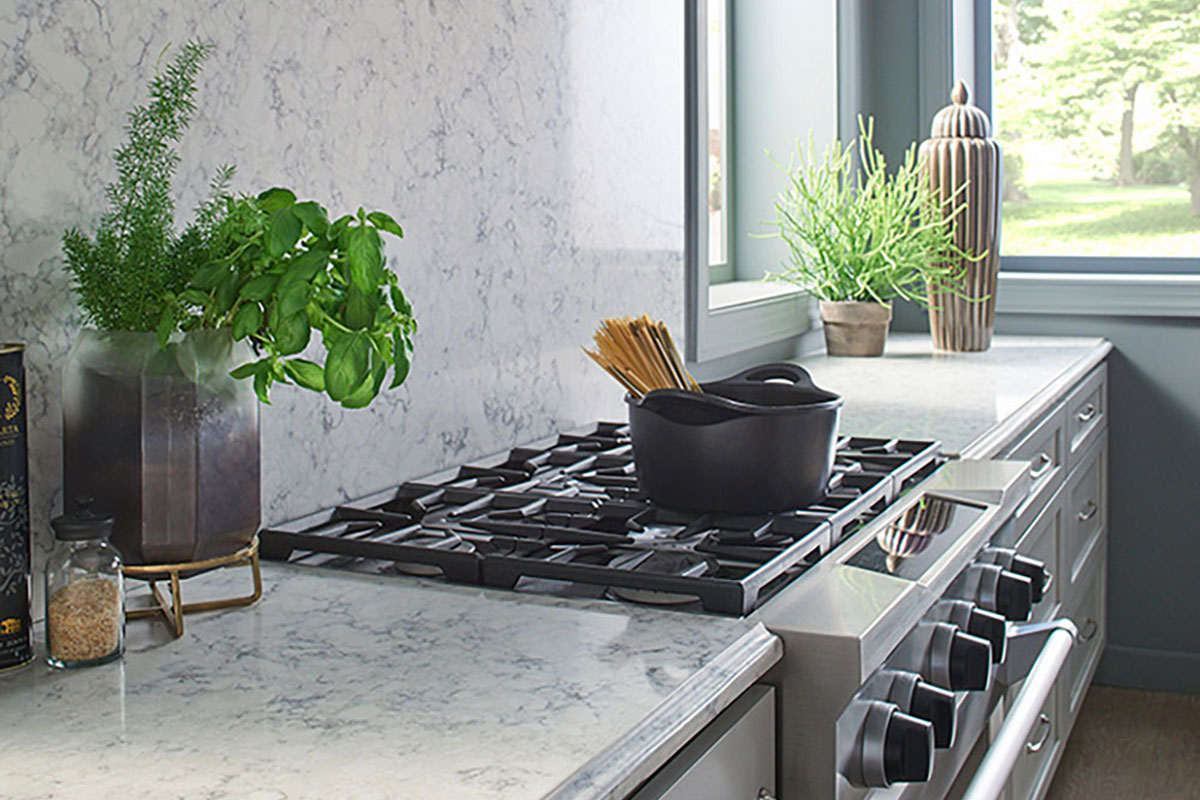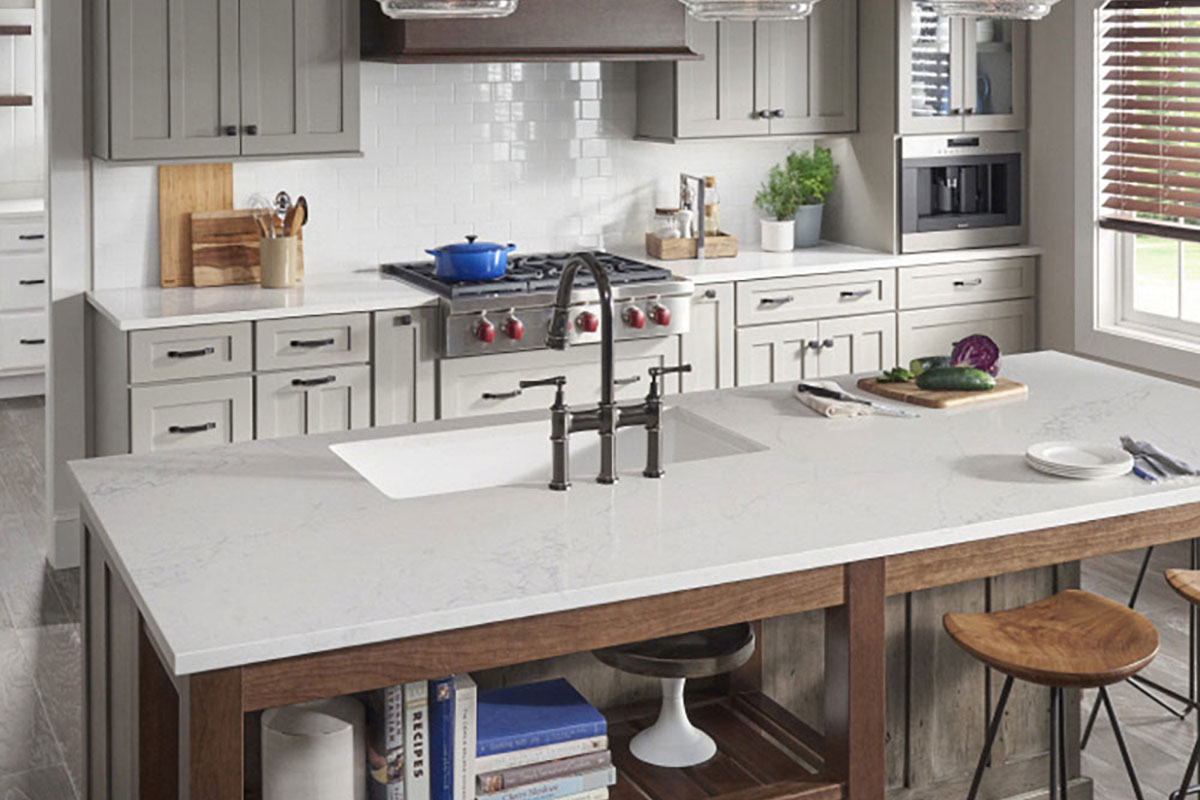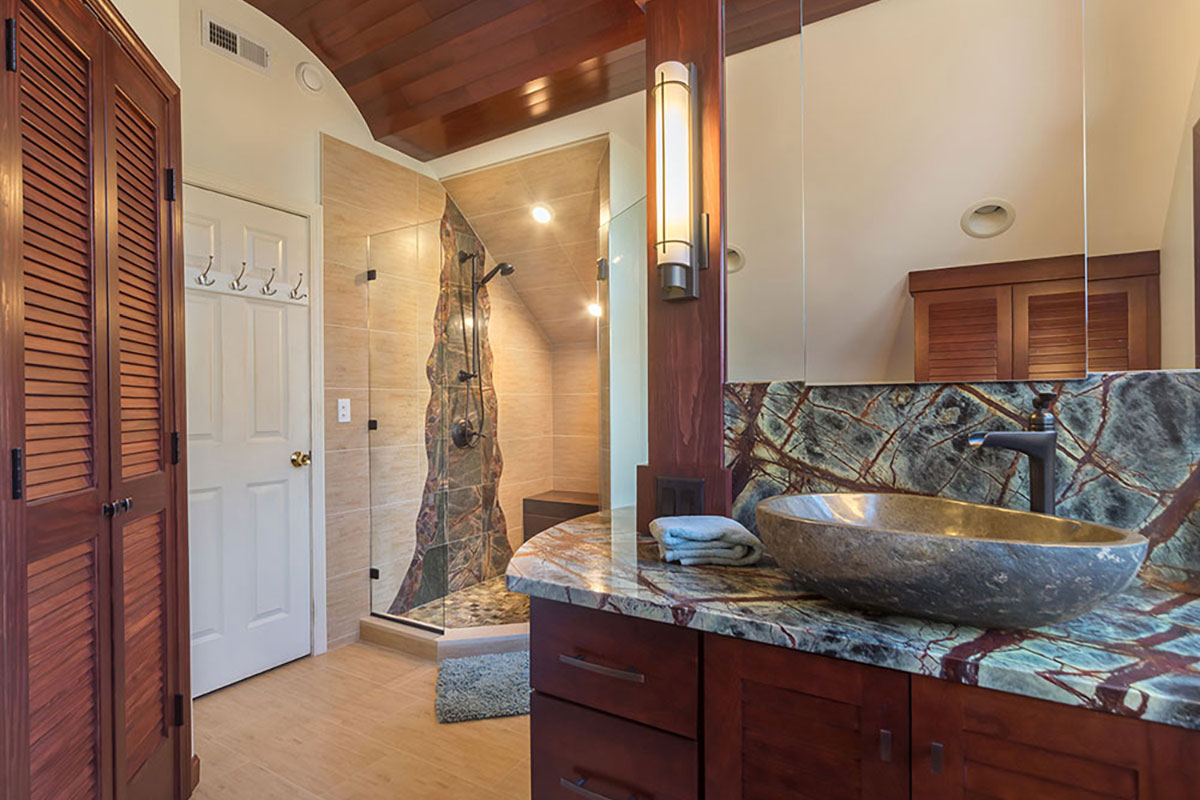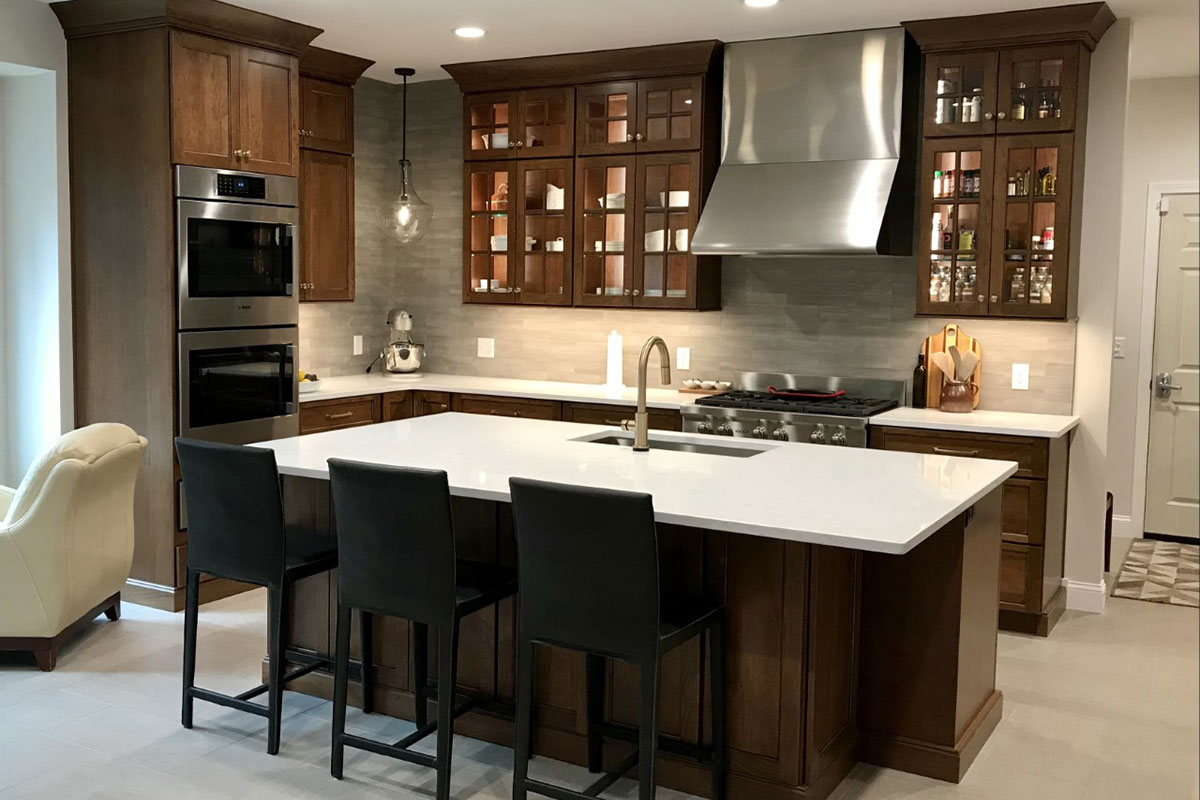
Porcelain is having a moment, and it’s not just for tile anymore. Thanks to improvements in manufacturing, porcelain slabs are now a serious contender for kitchen countertops, slab showers, and even outdoor spaces. Homeowners love it for its sleek look, wide range of finishes, and low-maintenance appeal. But is it the right choice for your home? In this guide, we’re answering the top questions homeowners ask when considering this utility-player for their next project.
Is porcelain good for kitchen countertops? 
Yes, porcelain is a fantastic choice for kitchen countertops. It’s non-porous, heat-resistant, and scratch-resistant, which makes it perfect for busy kitchens. It also stands up well to stains and acidic foods, so you don’t need to worry about lemon juice, red wine, or tomato sauce. Plus, it’s available in finishes that mimic natural stone, concrete, and wood grain, giving you endless design possibilities with far less upkeep.
Can porcelain be used in the shower?
Absolutely. Porcelain is a top-tier material for showers because it’s naturally water-resistant, easy to clean, and resistant to mold or mildew. These slabs are especially popular for full-height shower walls, offering a clean, modern look with minimal grout lines. Whether you want something simple or dramatic, it can bring a seamless, spa-like feel to your bathroom.
 Is porcelain more durable than granite?
Is porcelain more durable than granite?
Both materials are very durable, but they have different strengths. Granite is thicker and dense, making it extremely strong. But, it may require occasional sealing to protect against stains. Porcelain, on the other hand, is non-porous and doesn’t need sealing. It’s resistant to heat, scratches, and UV light, which also makes it a better option for outdoor installations. If low maintenance is your goal, porcelain often wins out.
How does porcelain compare to marble?
Porcelain gives you the elegance of marble without the worry. While marble is beautiful, it’s also soft and porous, which means it can stain or etch from everyday acids like vinegar or lemon juice. It is also much more durable and won’t absorb liquids or require sealing. Many porcelain surfaces are specifically designed to mimic high-end marble patterns, giving you the look you love with far less hassle.
Is porcelain heat-resistant? 
Yes, it is extremely heat-resistant. During manufacturing, it’s fired at over 2,000 degrees Fahrenheit, which makes it safe for high-heat environments. You can place a hot pot or pan directly on a porcelain countertop without damaging the surface. That said, we always recommend using trivets to keep your counters in top shape for the long haul.
Does porcelain chip easily?
This unique surface material is very hard and resistant to wear, but it can chip at the edges if struck hard enough. This is especially true for thinner slab formats. However, with proper fabrication, installation, and edge profiling, chips are uncommon in everyday use. Choosing a qualified installer—like Rumford Stone—helps ensure the material is handled properly to avoid damage.
 Is porcelain waterproof?
Is porcelain waterproof?
Yes, it is completely waterproof! Its dense, non-porous structure makes it ideal for bathrooms, kitchens, laundry rooms, and even outdoor areas. Water and spills stay on the surface, making cleanup easy and reducing the risk of mold or mildew. That’s one reason porcelain is trusted in both commercial and residential wet areas around the world.
Is porcelain hard to clean?
Not at all. In fact, one of porcelain’s biggest advantages is how low-maintenance it is. You don’t need any special cleaners—just mild soap and water will do. It doesn’t require sealing, won’t stain, and doesn’t harbor bacteria. For everyday cleaning, a damp cloth is usually enough to keep it looking fresh and polished.
Is porcelain expensive?
Pricing can vary depending on the brand, size, and finish, but it’s often competitive with quartz and more affordable than many natural stones like marble. Since it doesn’t require maintenance like sealing or special cleaners, it can also save money over time. Plus, its durability means you won’t have to worry about replacing or repairing when giving your countertops normal wear and tear.
Where can I buy porcelain slabs?
If you’re located in Maine, Massachusetts, Vermont, or New Hampshire, Rumford Stone is your go-to source for porcelain slabs. We carry a curated selection of high-quality surfaces, including full slabs for countertops, showers, and wall cladding. Our team is here to help you explore options, review edge details, and answer any questions about durability and care. Visit our showroom or contact us to get started.
This article features photos of TERACANTO porcelain from LX Hausys.



